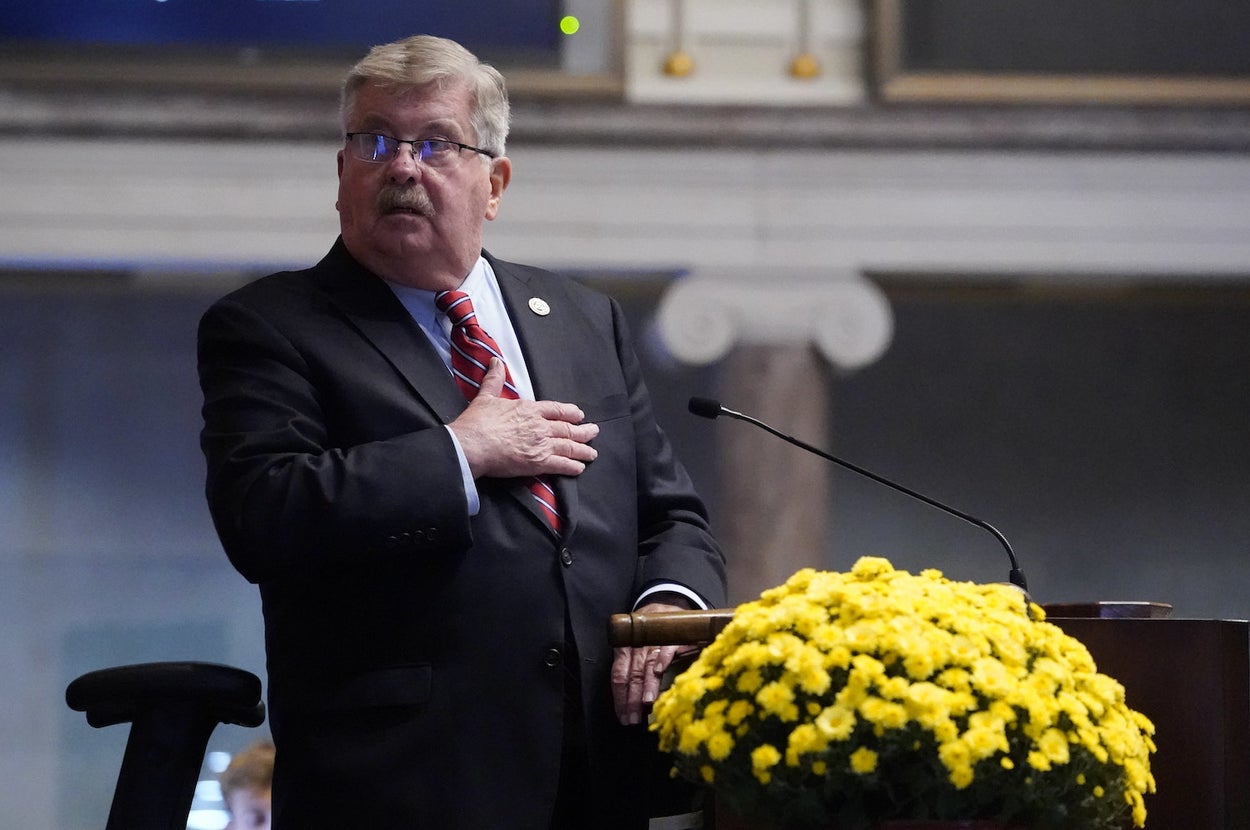Tennessee’s Republican Lieutenant Governor Randy McNally has been notably active on social media, specifically Instagram, where he has garnered attention for his interactions with younger individuals’ posts, primarily those of a particularly revealing nature. McNally, who has held the position since 2017 and also serves as the speaker of the state Senate, has drawn scrutiny for his empathetic and seemingly supportive comments and use of emojis in responses to these posts.
One such example includes McNally reacting to images of a young man known on Instagram as @franklynsuperstar, real name Franklyn McClur. Among the interactions, McNally dropped fire emojis and comments on various posts by McClur that range from playful to quite provocative. In one instance, when McClur shared a close-up photo emphasizing his buttocks, the lieutenant governor commented, “Finn, you can turn a rainy day into rainbows and sunshine!” highlighting his enthusiastic engagement with McClur’s posts.
Another interaction involved a post by McClur featuring lollipops, captioned with slightly provocative text. McNally’s comment here was more subdued, offering health wishes to McClur. Moreover, a photo depicting McClur with his shorts suggestively lowered drew a heart emoji from McNally, showing a pattern of engaging with more risqué content shared by the young influencer.
These online actions bring forth questions regarding the appropriateness of such interactions by a figure of McNally’s stature, particularly given recent legislative actions in Tennessee. The state legislature, presided over by McNally, has passed notably anti-LGBTQ laws. It’s an interesting juxtaposition; McNally’s social media behavior seems at odds with the legislative agenda he facilitates.
On the legislative front, Tennessee has witnessed significant conservative movements, including the enactment of a law that effectively bans public drag performances. Signed by Governor Bill Lee, this law prohibits performances by male or female impersonators in public spaces or where children might be present, citing interests in preventing entertainment that could be deemed inappropriately sexual. Another law restricts access to gender-affirming care for transgender youth, limiting the ability of minors to receive hormone treatments or surgeries related to gender transition. These laws, which go into effect July 1st, align with a broader national trend in conservative states imposing restrictions on LGBTQ rights.
Despite the legislature’s stance, McNally’s public interactions on social media suggest a different personal outlook. His comments toward McClur, who uses male pronouns and identifies himself as male on social media, are consistently supportive and encouraging, even as the photos become increasingly suggestive.
In response to the emerging controversy over his Instagram activity, McNally’s communications director, Adam Kleinheider, stated that there is nothing “sinister” about McNally’s use of social media. According to him, interpreting these interactions as inappropriate speaks more to the views of critics than it does to McNally’s intentions. Kleinheider describes McNally as a “prolific social media commenter” who enjoys connecting with people across various backgrounds through encouraging messages.
There seems to be a complex narrative at play, entwining personal behavior on social platforms with professional responsibility and public representation. McNally’s support on social media for someone who might be affected by the laws he facilitates creates a contradiction that is hard to overlook. This juxtaposition paints a picture of a political figure whose personal interactions may not entirely align with the political and legislative actions over which he presides.
As the lieutenant governor continues to navigate his role both online and in the legislative chamber amidst these backdrops, the public and media scrutiny may prompt broader discussions about the extent of personal versus public personas of politicians. These discussions are especially pertinent in an age where social media provides both a window and a mirror, reflecting personal inclinations while also framing public personas for scrutiny and interpretation. The unfolding narrative around McNally’s social media activities invites a deeper examination of the nuances of political responsibilities, personal freedoms, and the implications of their intersection.









